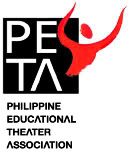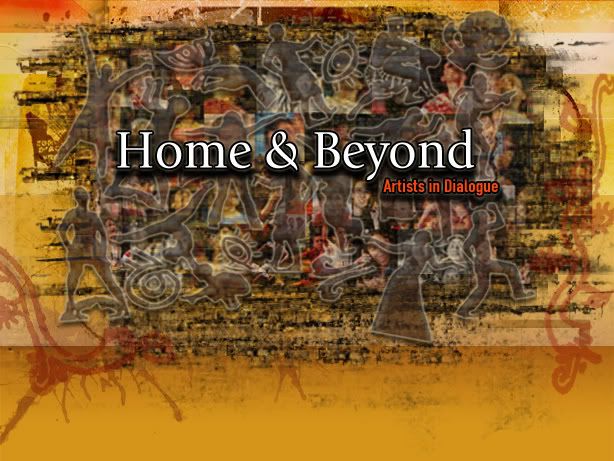Thursday, 18 August 2011
PETA Mekong Partnership Programme: Performing for children, health and gender justice**

“
Our work reflects our identity. The image that reflects from our dance piece—we can use to reflect our society,” says Purtiruk Songklib, a member of New Dance Theater in Thailand . He is a mong the growing number of artists from the Greater Mekong Sub-Region joining the Philippine Educational Theater Association (PETA) Mekong Partnership Programme’s community of social performers. From the theater artists of Thailand to contemporary dancers of Vietnam and China- they all gather together to share traditional and contemporary techniques and learn new artistic forms.
But beyond honing their artistic capabilities, the Programme is tasked to turn their creative energies into a potent tool for social advocacy.
“Before joining PETA, I always thought of the artistic perspective,” says Nguyen Hoang Tung, an actor from the Youth Theater in Vietnam .
Crossing National Boundary
It was in September 2004 that PETA crossed its maritime borders to embark on a pilot Programme among performing artists in the culturally diverse yet largely impoverished Greater Mekong Sub-region.
The Programme has since established projects that have facilitated crossborder exchange, capacity building and partnership among the Mekong performing arts communities. It has explored ways of using the creative environment for learning and advocacy.
At the onset, the PETA Mekong Partnership Programme partnered with the Rockefeller Foundation to mobilize performers around the issues of gender, sexuality and HIV/AIDS. Beginning in March 2009, PETA has forged partnership with Save the Children-UK’s Mekong Cross Border Project and later with Terre des Hommes Germany to promote the rights of children in the region.
Thus far, the Programme has reached all six countries comprising the Mekong region- Cambodia, Laos, Myanmar, Thailand, Vietnam and China‘s Yunnan Province—with varying degrees of collaboration and assistance. It has supported about 27 performing troupes across the region, trained some 200 performing artists and 400 children and youth, reached out to 180 adult artists and media practitioners, and has put on shows for an estimated 80,000 audiences.
The Laboratory
The Mekong Performing Arts Laboratory is a key component of the Programme. It is an ambitious and bold experiment in combining various performing arts and disciplines with advocacy theater to create fresh works with seven cultures at play, including that of PETA’s home country, the Philippines .
The Laboratory is an inter-cultural exchange and capability building programme component that provides interactive processes for artists to learn various social issues and explore ways to present them onstage. It is a three-week intensive training course designed to help artists understand how theater may be used for advocacy and how they can strengthen their artistic and organizational capacities for campaign.
“Creation of successful advocacy art is very much grounded in the understanding of the issue and its translation into a fine aesthetic expression,” says Maribel Legarda, Laboratory Artistic Director.
Each Laboratory culminates in a showcase-recital of the new works performed before an audience numbering from 300 to 4,000. Outstanding works could merit support for future public performances, including community mobile tours.
Adult leaders and children’s rights advocates from various agencies in Mekong countries in an intensive 10-day workshop on Child Protection work using PETA’s Creative Pedagogy co-organized by Save the Children with support from the European Union.
In all, five Laboratories have been conducted in the Greater Mekong Sub-region, bringing together different mixes of disciplines and practitioners such as artistic leaders (directors, playwrights and choreographers), performers (actors, dancers, musicians, puppeteers), and managers. Scholars and development workers have also joined the Laboratories.
Technical and Financial Support
Through the Arts for Advocacy Fellowship, the PETA Mekong PartnershipProgramme extends financial and technical support to performing artists and groups engaged in advocacy (e.g., community mobile performance tours), education (through productions and events), and outreach exchange programmes (e.g., repertory theater guidance, artist exchange projects).
Young artists and youth leader-advocates from Mekong and the Philippines join hands in building dreams and imagining a better society.
Over six years, PETA has provided assistance for the following new bodies of work:
- Thirty- nine new short performance piece developed in the Laboratories.
- Twenty six full-blown productions performed before various audiences.
- Four short plays about women piloted and performed in Thailand . Four new works were written and translated into three languages. These works were read in play reading sessions by artists and students.
- Four murals on the theme of domestic violence and relationships painted by Cambodian and Thai artists.
Impact
For Mao Kosal, former executive director of the social circus group, Phare Ponleu Selpak of Cambodia , measuring the impact of performances on audience behavior is always tricky.
“Normally the audience would not understand, but we try to give them the message. Audiences always accept the show…but if you interview the community, they do not know how to say. They just say, ‘good show and with education,” Kosal says.
Measurable changes, however, have been noticed in the community.
“Around the center, there were a lot of problems in this poor community,” Kosal explains, adding that there used to be a lot of brothels, street gangs and problems related to drug use and violence. Now the community has changed, he explains, not because of formal education but because of education through art.
In the Rapid Appraisal of the PETA Mekong Arts Programme in 2007, Dr. Rosalia Sciortino, the incumbent Regional Director of the International Development Research Centre, concludes:
“PETA has been successful in overcoming the challenges of integrating differences into a pluralistic, yet united, Mekong art community core.” This holds true today as participating groups continue to interact in various ways, learning from each other’s differences. The network has served as a crucible to sharpen perspectives, hone skills and form a movement of artists for the vast and diverse Mekong region.
** This article was first published in “Spaces To Be”, a publication produced by Terre des Hommes Germany . Reposted with permission.
PETA SEA Group

 Home and Beyond is an integrated communication tool for the PETA members, staff and partners of the PETA Mekong Partnership Project. It consists of a weblog and occasional e-newsletter containing project news updates, reflections, journals, messages written for internal reading/sharing of members and alumni of PETA and its Project partners.
Home and Beyond is an integrated communication tool for the PETA members, staff and partners of the PETA Mekong Partnership Project. It consists of a weblog and occasional e-newsletter containing project news updates, reflections, journals, messages written for internal reading/sharing of members and alumni of PETA and its Project partners. 
